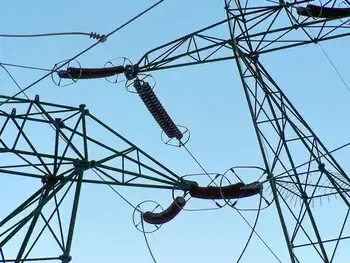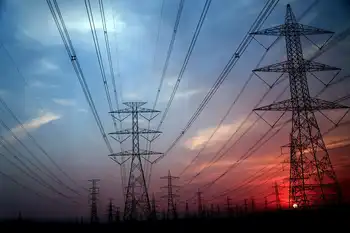Bandwidth metering: a path to empowerment?
By Telephony
High Voltage Maintenance Training Online
Our customized live online or in‑person group training can be delivered to your staff at your location.

- Live Online
- 12 hours Instructor-led
- Group Training Available
Presently, Comcast has set a bandwidth usage limit at 250 gigabytes - a very generous amount that is unlikely to be surpassed by 99% of their subscribers.
Although there are a handful of U.S. broadband operators that offer bandwidth-metering capabilities, they are the exception, not the rule. In fact, none of the major U.S. broadband providers offer users the ability to track/monitor their bandwidth usage - the question is why. Are they afraid of what consumers' will find? Absolutely.
First, most consumers will find that their actual broadband service fails to live up to its promise. In my own experience, my 6 Mb/s download speed is actually closer to 2 Mb/s (on a good day), but it will supposedly "boost" to 6 Mb/s. Unfortunately, I have no clue when the "power boost" feature is activated. It makes me wonder if I would be getting the same level of service from a lower-cost package.
Second, consumers will become more educated in understanding which applications use the most bandwidth and potentially limit their use. This could become detrimental to an operator that has plans to sell its broadband service by bandwidth tiers, rather than speed tiers.
The Comcast Data Usage Meter, while a good start, has a number of shortcomings. Data is only refreshed every three hours, and the information provided is cumulative on a monthly basis. The problem with both of these attributes is that a consumer will not be able to identify which applications are using the most bandwidth.
How much bandwidth does an average user consume? Comcast states that the average residential user consumes between 2 to 4 gigabytes per month. Just to validate, I did an informal survey of a few colleagues. A "light" user - someone who does not stream much, if any, video, but works from home - uses about 5 gigabytes per month. A "power" user - again, a telecommuter, but also a techno-geek who downloads and streams a lot of video - uses about 35 gigabytes per month. As you can see, there is still a significant amount of bandwidth left, based on Comcast's current cap.
Perhaps broadband service providers should follow the lead of utilities and provide more detailed metering capabilities. Most smart meters and metering software allow consumer to track their usage in "real time" to understand how they use electricity throughout the day. With demand response programs in place, a consumer will know how much it costs to use electricity at certain times of the day and adjust their usage accordingly.
Although I don't expect broadband service providers to offer consumers this level of sophistication, it does seem surprising that they don't offer some type of widget that can provide a visual indication of how much bandwidth an application consumes. By the same token, it would also be feasible to provide consumers with information regarding peak usage time periods and possibly even offer them higher bandwidth during low usage periods.
If utilities can change consumption patterns to make the electrical grid more efficient and balance the load, shouldn't the same capabilities be achieved on the broadband infrastructure?
I'm not a fan of pay-by-the-bit pricing models. But if a consumer is a very light user of bandwidth, why should they pay the same as someone who consumers 10 times their amount? Even if they don't want to provide a metering tool, shouldn't they at least tell you on your bill how much bandwidth you used that month?
Bandwidth metering is not a popular topic, but it has the potential to enable broadband service providers to implement new pricing models, such as time-of-day pricing discounts, as well as true entry-level packages.
Regardless, consumers have a right to know what they use and bandwidth metering provides them with this empowerment.











